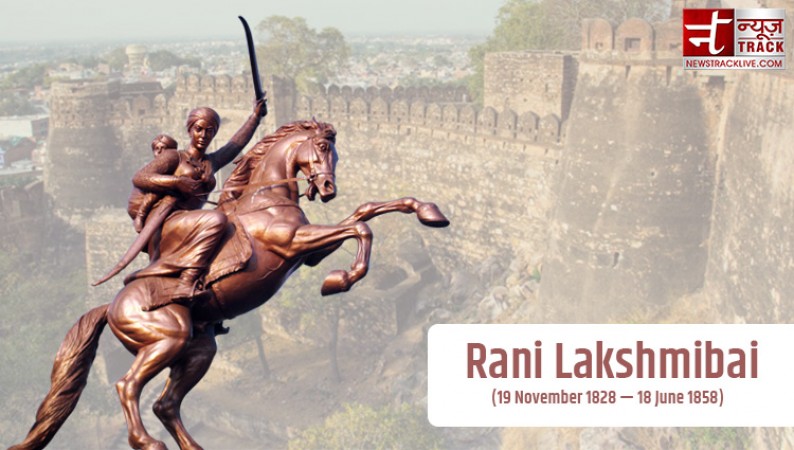
On June 18th, we commemorate the death anniversary of one of India's most iconic and courageous freedom fighters, Rani Laxmi Bai. Also known as the Rani of Jhansi, she played a pivotal role in the Indian Rebellion of 1857, bravely fighting against the British colonial rule and leaving behind a legacy that continues to inspire generations.
Born on November 19, 1828, in the town of Varanasi, Rani Laxmi Bai was named Manikarnika Tambe at birth. She grew up in a humble household, but her early years were marked by determination and a strong will. Her father, Moropant Tambe, played a significant role in shaping her character and instilling a sense of independence.
At the tender age of four, Manikarnika lost her mother. Despite this early tragedy, she received an excellent education, which was unusual for girls at the time. She learned various subjects, including martial arts, horsemanship, and archery, and displayed remarkable courage and fearlessness from a young age.
In 1842, Manikarnika was married to Maharaja Gangadhar Rao Newalkar of Jhansi, and she became the queen consort, taking on the name Lakshmi Bai. Sadly, her husband passed away in 1853, leaving behind a young son named Damodar Rao. The British, however, refused to recognize Damodar Rao as the rightful heir, and this injustice would eventually spark the flame of rebellion in Rani Laxmi Bai's heart.
When the Indian Rebellion of 1857 broke out, Rani Laxmi Bai emerged as a formidable leader. She fearlessly rallied her people, encouraging them to rise against the British East India Company's oppressive rule. With her exceptional military skills and unwavering determination, she fought several battles against the British forces.
The Battle of Jhansi, which took place in March 1858, became a defining moment in Rani Laxmi Bai's life. Leading her army, she valiantly defended her kingdom against the British forces led by Sir Hugh Rose. Despite being outnumbered and facing immense challenges, she displayed incredible bravery and strategic acumen. However, the British eventually managed to capture Jhansi.
Undeterred, Rani Laxmi Bai refused to surrender and escaped to the fortress of Kalpi, where she continued to resist the British. She fought alongside other rebel leaders, including Tantia Tope and Rao Sahib, and became a symbol of resistance and freedom for the Indian people.
Tragically, on June 18, 1858, Rani Laxmi Bai was mortally wounded in battle in Gwalior. Her indomitable spirit remained unbroken until the end, as she fought valiantly for her country's independence. Her untimely death at the young age of 29 left a void in the hearts of Indians across the nation.
Rani Laxmi Bai's courage and sacrifice have made her a legendary figure in Indian history. She exemplified the spirit of women empowerment, displaying unparalleled bravery and inspiring future generations to stand up against injustice. Her iconic battle cry, "Khoob ladi mardaani woh toh Jhansi wali Rani thi" (She fought as fiercely as men, she was the Queen of Jhansi), continues to resonate with people, symbolizing the strength and determination of women.
Today, as we remember Rani Laxmi Bai on her death anniversary, let us pay tribute to her extraordinary life and contributions to India's struggle for independence.